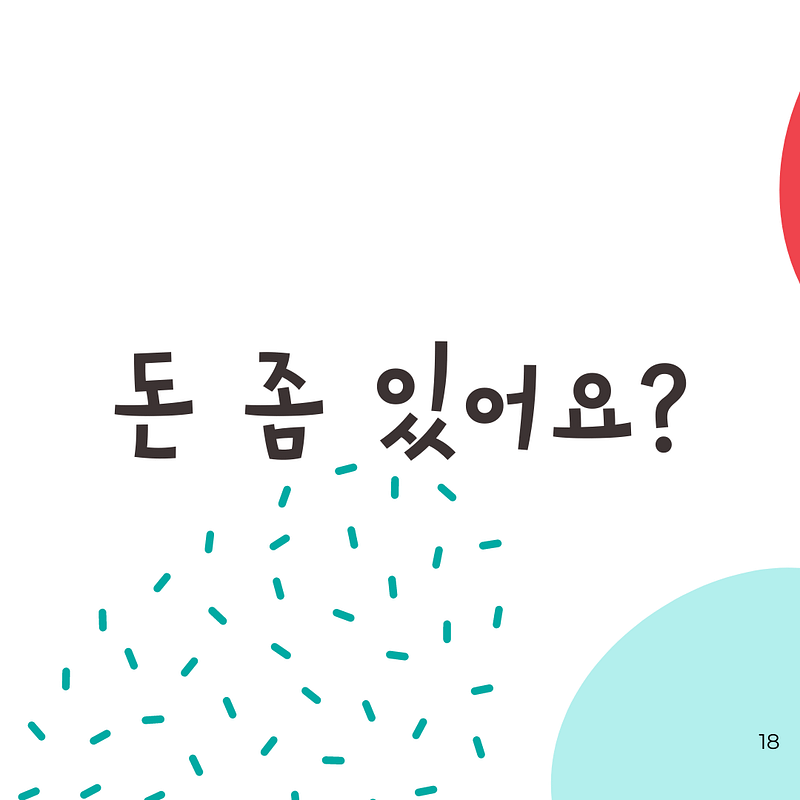Powered by RedCircle
Vanessa: 3화: 돈 좀 있어요?
Chris: Episode #3: Do you have some money?
Vanessa: 크리스, 안녕하세요. 혹시 돈 좀 있어요?
Chris: 엇… 돈 있어요. 왜요?
Vanessa: Hahaha. do not be scared. Actually, it’s an expression that we are going to learn today.
Chris: Vanessa…. I am very shocked… You sounded like a bully.
Vanessa: Hahaha really? when I actually take your money, then It’s bullying. But I didn’t. Well. I have money too. I’m not going to take your money. I’m going to buy a coffee today with my money.
Chris: 아, 그래요? 그럼 저도 커피 사주세요. Oh really? Then buy me a coffee!
Vanessa: Oh come on Chris, you are bullying!
Chris: Am I? Sorry. Anyway, is the expression we are learning today is “돈 있어요?”
Vanessa: 네 맞아요. Yes, that is correct. Today, we are going to learn about one of the most used verbs in Korean, “있어요/없어요”.
Chris: Okay. I heard 있어요/없어요 quite a bit. However, I have trouble using the 있어요/없어요.
Vanessa: If you want to literally translate it into English, it means To exist. However, as always, this verb can not replace all the English expressions of to exist. If you look up the Korean-English dictionary, there are as many as 15 English meanings of the verb “있어요/없어요”.
Chris: What 15? How can I memorize all of that?
Vanessa: Don’t worry. You don’t need to memorize it. It’s not even worth memorizing it because it’s not useful. If you know the exact meaning of this verb, it will be much easier to learn and use it.
Chris: Alright, 그럼 알려주세요, explain it to me.
Vanessa: First of all, think “있다(D.F) / 있어요(C.F present)” means to exist, while “없다(D.F) / 없어요(C.F present)” means opposite, not to exist. However, a more defined meaning is the verbs 있어요/없어요 that indicate a person, animal, object, or fact or phenomenon that either exists or does not exist.
Chris: Can you give some examples? I’m not really getting it.
Vanessa: First of all, to indicate the existence of a person, an animal, or an object, in English, the “Be verb” or there is/are sentences are used like There’s a dog, there are some buildings, I am at the school etc. However, if you look closely at the meaning of each sentence, it indicates that something exists somewhere. So in all of these cases, Korean uses the verb ‘있다’. So, There’s a dog 강아지가 있어요, there are some buildings 빌딩들이 있어요, I am at the school 저는 학교에 있어요 are used.
And this meaning can also be expanded like when I express that I own something, etc., the Korean language expresses that the object exists to me. So when I say, I have money, 저는 돈이 있어요. For more accurate translation, speaking of(as for) me, money exists to me. Rather than directly expressing possession of it, the object is with or to me. In another way of looking at it, the Korean language expresses passively the ownership of the object.
Chris: Okay, So there is a difference in the way of expressing the same situation or state of being.
Vanessa: 네, 맞아요. Yes, that is correct. The English speaker and the Korean speaker have different perspectives on the situation or state, so the way of expressing is different. If you learn Korean while understanding these points together, you will not only acquire language skills, but you will also have a variety of perspectives on the world, and your view of the world will be enriched.
Chris: That’s right. I think it’s really remarkable. Today, we learned how to express 있다 / 없다to exist / not to exist Korean expression. Then Vanessa, now shall we practice examples?
Vanessa: 네 좋아요!
Situation #1
Vanessa: 크리스, 저 길을 잃어버렸어요. 어떡해요. Chris, I’m lost. What should I do?
Chris: 괜찮아요. 걱정하지 마세요. 지금 주변에 뭐가 있어요? It’s okay. Do not worry. What’s around now?
Vanessa: 여기 경복궁이 있어요. Here is Gyeongbokgung Palace.
Situation #2
Vanessa: 안녕하세요? 여기 화장실이 어디에 있어요? Hello. Where is the restroom?
Chris:죄송합니다. 그런데 이 건물에는 화장실이 없어요. Sorry. But there is no bathroom in this building.
Situation #3
Vanessa: 크리스, 지금 돈 좀 있어요? Chris, do you have some money?
Chris: 네, 저 돈 있어요. 왜요? Yes, I do have some money, why are you asking?
Vanessa: 사실은… 커피 마시고 싶어요. 크리스, 커피 사주세요! The fact is… I want to drink coffee. Chris, buy me a coffee!
Chris: 싫어요. No, I don’t want to
Follow us on Instagram: KoreanStudyCafe.Offical
Follow us on Twitter: @KoreanStudyCafe




